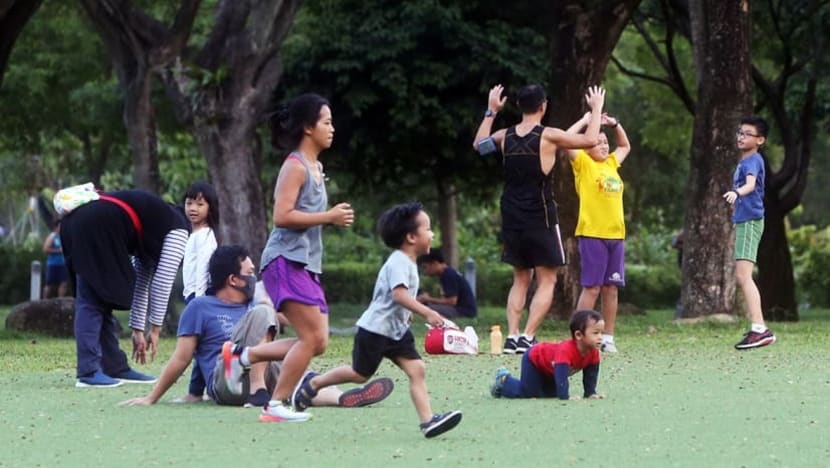Singapore falls 5 spots to 30th in world happiness ranking but still tops Asia for 2nd straight year

Singapore fell five spots to be ranked the 30th happiest country in the world. (Photo: TODAY/Ooi Boon Keong)
SINGAPORE: Singapore fell five spots to 30th globally but kept its ranking as Asia's happiest country for the second year running in the World Happiness Report 2024.
The annual United Nations-backed report, released on Wednesday (Mar 20), also found that Singaporeans aged under 30 rank lower in terms of happiness measured against their global peers than the elderly here, aged 60 and above.
The ranking is based on a global poll conducted by Gallup, a United States-based firm, which asks respondents to rate their lives on a scale of 0 to 10.
It surveys about 1,000 respondents per country annually, with each year’s ranking based on data collected for the three most recent years. For the 2024 report, data from 2021 to 2023 was used.
Singapore had been steadily rising over the past three reports, ranking 25th, 27th and 32nd globally for the 2023, 2022 and 2021 rankings.
The report noted that the top 10 countries have “remained much the same” since before the COVID-19 pandemic.
“Finland is still top, with Denmark now very close, and all five Nordic countries in the top 10,” said the report.
However, more changes were notable in the next 10, with some eastern European countries rising in happiness while the United States and Germany fell out of the top 20 to 23rd and 24th respectively.
Singapore has been ranked Asia's happiest country for the second year in a row, according to the 2024 World Happiness Report. The country ranked the 30th happiest out of 143 places surveyed, but that's five positions lower than from a year ago. The countries were rated according to six factors: GDP per capita, social support networks, healthy life expectancy, freedom to make life choices, charity donations, and perceptions of corruption. Finland topped the global list for the seventh straight year, followed closely by Denmark and Iceland.
HAPPIEST IN ASIA
Topping the global chart of 143 places surveyed this year’s report is Finland, followed by Denmark, Iceland, Sweden and Israel.
Also placed above Singapore are countries in the Asian continent but recognised as part of the Middle Eastern region, such as Kuwait (13th), United Arab Emirates (22nd) and Saudi Arabia (28th).
Ranked just above Singapore is Kosovo (29th), while the territory of Taiwan was ranked 31st globally and second place in Asia in this year’s report.
The next highest Asian economies in the ranking are Japan (51st), South Korea (52nd) and the Philippines (53rd).
Malaysia ranked 59th while Indonesia was placed 80th.
SINGAPORE YOUTH LESS HAPPY
The 2024 report noted that country rankings for the young and the old “are quite different”.
"Countries ranking highest for the old are generally countries with high overall rankings, but include several where the young have recently fared very poorly,” it added.
This year’s report zoomed in on two age groups - the “young” aged 30 and below, and the “old” aged 60 and up.
Among the young, Lithuania, Israel and Serbia took the first, second and third spots respectively. Singapore ranked 54th, a spot below Greece and just ahead of Spain.
Conversely, the elderly in Singapore ranked much higher at 26th, just behind France and ahead of Saudi Arabia. Denmark, Finland and Norway rank number one, two and three.
Previous years’ reports did not give happiness ranking breakdown by age groups.
BENEVOLENCE AMONG THE YOUNG
The Gallup World Poll, which the happiness report draws on, also tracks three types of benevolent behaviour: Giving donations, volunteering and helping strangers.
The report found that there was an increase in such acts in the post-pandemic years.
“For all three acts, the increases in benevolence, whether measured as shares of the population, or percentage increases from pre-pandemic levels, are greatest for millennials and Gen Z,” the report found.
“(This suggests) that millennials are even more likely than their predecessors to increase their benevolent acts when a new need like COVID arises.”
The report does not give a breakdown of benevolent actions by countries.
This article was originally published in TODAY.















